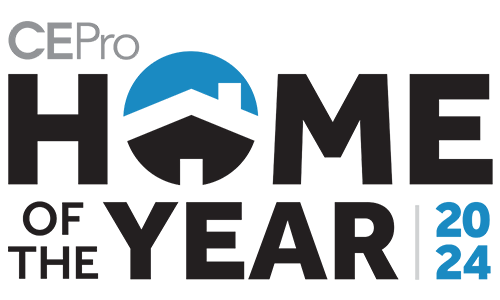Digital Butler from Holistic Labs combines the best of IP device-discovery with a complete project- and business-management platform for home-technology integrators. It’s kind of like Domotz or Krika meets ConnectWise or any of the project and productivity software makers in the custom-electronics market. And it is probably most akin to ihiji, given that company’s move into back-end processes for business owners.
Not familiar with those companies (they'll all be at CEDIA 2016)? Digital Butler discovers IP devices on the network, presenting rich data about those devices – not just an HP Printer or Samsung TV, for instance, but model numbers and other data as well.
The software “scans the network and fingerprints the network,” says founder and CEO Ramanathan “Bala” Balachander. “We’re not just listing the MAC addresses. There’s a lot of deep scanning and probing.”
There’s a learning component in there as well, with crowd-sourced identification of IP devices. So the more devices and the more participants in the Digital Butler ecosystem, the better it does at identifying products.
This type of service isn’t unique in the industry. Domotz (especially with its recent acquisition of Fing) and Krika employ similar IP discovery and crowd-sourced identification. Eero, the start-up mass-market networking solution isn’t far behind.
What Digital Butler brings to the table is a software suite for home-tech specialists to profit from the “network fingerprints” of their clients’ premises.
Like other players in the industry, Digital Butler allows dealers to monitor their clients’ networks remotely, troubleshoot issues before the customer is aware of them, and fix problems from afar.

But if further intervention is required, Digital Butler has the tools built into its app for assisted tech-support, or what Balachander calls “integrated collaboration.”
From within the app, customers can turn on their smartphone camera to demonstrate the problem or show the gear to the installer, who can then “basically guide the consumer to fix the problem,” Balachander says.
That video log – and the errors that precipitated it – are cataloged automatically in the dealer’s record for that client. Dealers can create “cheat sheets” for their customers, reminding them how to use certain products or fix persistent issues.
In fact, a key tenet of Digital Butler is self-help for the user as well as the dealer’s service team. The company goes one further and provides an SOS service so that customers can turn to their buddies for troubleshooting help.
IP Discovery and Business Process: a Perfect Match
Where Digital Butler diverges from other device-discovery and network-monitoring software is in the business tools that accompany it. The same app that logs new IP devices and monitors the health of the network … also logs support calls so dealers can better monetize their service.
“By tracking how much support they’re providing,” says Balachander, “they can make sure they’re getting paid.”
All of that flows into a larger system that includes customer management, crew management, workflow management … everything from “project acquisition to design, installation and then support,” Balachander explains.
He wants to “take business and business processes to the next level … to make dealers more organized, more methodical.”
Hermary’s a home-technology integrator in the California Bay Area, has been testing Digital Butler for a few months, and is also familiar with competitors in this space.
Longtime Hermary’s system designer Paul Foley says he likes that the client can initiate a service issue from within the Digital Butler mobile app.
“I immediately get notified on their [Digital Butler’s] back-end installer-only Web service and it automatically creates a trouble ticket and logs the voice or chat session we have,” Foley says. “During this session I get an entire overview of the home and I can even ask to view their camera on the client’s phone so they can hold it up to the TV or equipment rack and I can physically see what issue they’re experiencing. This is all stuff none of these other guys do.”
In the future, Digital Butler plans more “forward integration,” Balachander says. “What SolarCity did for solar, we’re trying to do the same thing for the smart home.”
SolarCity made the process of solar adoption easy for residential customers, he explains, “by tying together proposal design, financing, product procurement, installation and service support into a single product.”
In other words, Balachander says, “They [SolarCity] took the unsexy part of the business and kicked everybody’s butt.”
The next step in this forward integration is for Digital Butler to take over the first line of tech-support for dealers. Using its own network-troubleshooting tools, the company could resolve a “high percentage of calls,” without troubling the integrator who ultimately gets credit for the service, according to Balachander.
In this way, Digital Butler seems a lot like OneVision Resources, which is using ihiji for device discovery and monitoring, along with ihiji's ServiceManager for customer management and billing, and then providing tier 1 tech support on behalf of dealers.


















